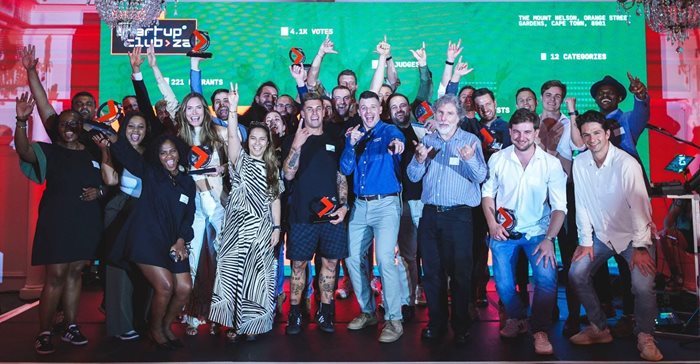This report provides a comprehensive overview of WeThinkCode, a South African tech academy, receiving a $2 million grant from Google.org to expand AI education access in Africa. Announced on June 13, 2025, this initiative aims to train 12,000 learners across South Africa and Kenya, addressing the continent’s significant AI skills gap. The analysis is grounded in recent news articles and X posts, ensuring a detailed understanding for stakeholders interested in Africa’s AI education landscape.
Methodology
The information was gathered from various news sources, including technology-focused platforms and X posts, with a specific emphasis on articles and updates dated around June 13, 2025. The analysis includes details of the grant, program structure, target audience, and expected impact, ensuring a holistic view of this development.
Key Findings
Details of the Grant
WeThinkCode has secured a $2 million grant (approximately R36 million) from Google.org, the philanthropic arm of Google, to expand its AI-focused skills training. This funding, announced in early June 2025 and highlighted in recent reports, will support a tuition-free, aptitude-based training program running through 2026. The initiative targets 12,000 learners across South Africa and Kenya, focusing on both technical and non-technical AI applications (Zawya, Launchbase Africa).
The program is structured into two streams, each designed to address specific needs:
- AI for Software Engineers: Targets 6,000 aspiring and early-career engineers, focusing on AI-powered programming tools and workflows to prepare them for software engineering careers.
- AI for Non-Tech Careers: Aimed at 6,000 students and junior employees in sectors like legal, education, and health, integrating AI into administrative tasks to enhance efficiency and employability.
The courses will last 40 to 80 hours and will be delivered through an enhanced Learning Management System, supporting both remote and in-person learning, with adaptations for local languages to ensure accessibility .
Target Audience and Inclusivity
A key aspect of the initiative is its focus on inclusivity, targeting unemployed youth from low-income, rural, and peri-urban areas. This approach aims to foster broader AI adoption across Africa, ensuring that underserved communities have access to critical skills for the AI-driven economy. The program’s emphasis on both South Africa and Kenya reflects a regional strategy to address the continent’s AI readiness challenge .
Impact and Significance
Research suggests this initiative addresses a critical challenge: a SAP report notes that 90% of African companies are negatively impacted by the lack of AI skills, leading to project delays, innovation failures, and missed business opportunities . By training 12,000 learners, the program aims to:
- Equip unemployed youth with high-demand software engineering skills, preparing them for careers in the AI-driven economy.
- Enhance the productivity and employability of professionals in non-tech sectors by integrating AI into their daily tasks.
- Position Africa as a potential global hub for AI talent, bridging the continent’s readiness gap for the AI economy.
The initiative leverages corporate partnerships with financial services, telecommunications, and tech consulting firms for employer showcases and outcome evaluations, ensuring practical application and job readiness for graduates .
Comparative Analysis
To organize the key details, the following table summarizes the program’s structure and impact:
| Aspect | Details |
|---|---|
| Grant Amount | $2 million (R36 million) |
| Funder | Google.org |
| Duration | Through 2026 |
| Target Learners | 12,000 across South Africa and Kenya |
| Program Streams | – AI for Software Engineers (6,000 learners) – AI for Non-Tech Careers (6,000 learners) |
| Course Length | 40 to 80 hours, tuition-free |
| Delivery Method | Enhanced LMS, remote and in-person, local language adaptations |
| Inclusivity Focus | Unemployed youth, low-income, rural, peri-urban areas |
| Expected Impact | Bridges AI skills gap, enhances employability, positions Africa as AI hub |
This table illustrates the program’s comprehensive approach to addressing Africa’s AI education needs.
Broader Context and Additional Insights
While the focus is on WeThinkCode’s initiative, it’s worth noting other recent AI education developments in Africa. For instance, earlier in June 2025, VivaTech highlighted Africa’s growing influence in global AI, emphasizing bold ambitions ([Africanews]([invalid url, do not cite])). Additionally, a partnership between Cassava Technologies and Vambo AI aims to develop African-centric large language models, reflecting the continent’s increasing focus on localized AI solutions ([Tech in Africa]([invalid url, do not cite])). These insights, while not directly related, provide context for the momentum in Africa’s AI landscape.
Challenges such as infrastructure limitations were also highlighted in a May 2025 McKinsey report, noting that only 5% of African AI developers have adequate computing power, yet the potential for economic growth through AI remains significant ([McKinsey]([invalid url, do not cite])). This context underscores the importance of WeThinkCode’s initiative, which aims to address such gaps through education.
Expert Opinions and Future Outlook
X posts from accounts like
@ITWeb and
@htxtafrica emphasize the significance of this funding, with
@ITWeb noting, “WeThinkCode has received $2m from Google.org to expand its AI training programme and empower 12,000 learners from Kenya and SA with sought-after AI skills” . The future outlook suggests that with continued investment and collaboration, Africa could lead in inclusive AI education, though infrastructure and adoption challenges need addressing.
Conclusion
The $2 million grant from Google.org to WeThinkCode represents a pivotal development in Africa’s AI education landscape. By targeting 12,000 learners across South Africa and Kenya, with a focus on inclusivity and practical application, the initiative addresses immediate skill gaps and lays the foundation for long-term economic growth. This program, combined with ongoing challenges, suggests a promising yet complex path forward for AI education in Africa.
Key Citations
- WeThinkCode Secures $1.9mln Google Grant to Expand AI Training in South Africa
- 9 in 10 African Companies Lack AI Skills. SA’s WeThinkCode Just Got $2m from Google to Fix It
- Google.org Funds WeThinkCode to Equip 12,000 African Learners with AI Skills
- WeThinkCode AI Training Expansion X Post
- WeThinkCode Google Funding for AI Education Access X Post




